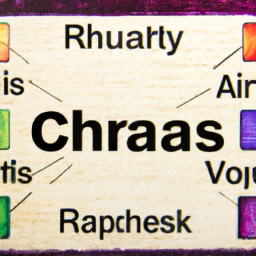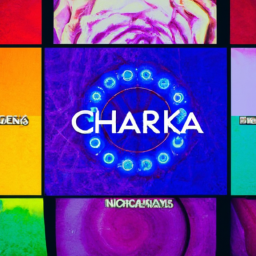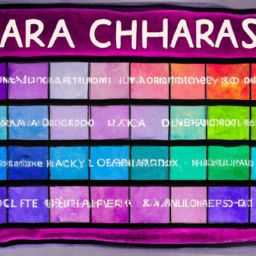: Understanding the Energy Centers of the Body
Chakras, also known as energy centers, are an important part of the spiritual and physical well-being of a person. They are believed to be spinning wheels of energy that run along the spine, from the base of the spine to the crown of the head. Each chakra is associated with different physical, emotional, and spiritual aspects of our being.
There are seven main chakras in the body, and each one plays a crucial role in maintaining balance and harmony in our lives. However, the question that often arises is, which chakra is the best? The answer to this question may vary for each individual, as each person’s energy, experiences, and needs are unique.
The Root Chakra (Muladhara)
The root chakra is the first chakra located at the base of the spine. It is associated with stability, security, and basic needs such as food, shelter, and safety. When this chakra is balanced, we feel grounded, safe, and secure. However, when it is imbalanced, we may experience fear, anxiety, and a lack of confidence. The root chakra is essential for our survival and is the foundation upon which all other chakras are built.
The Sacral Chakra (Svadhisthana)
The sacral chakra is the second chakra located just below the navel. It is associated with creativity, pleasure, and emotional balance. This chakra is also linked to our sexual energy and relationships. When this chakra is balanced, we can express ourselves creatively, have healthy relationships, and experience pleasure in life. An imbalance in this chakra can result in a lack of creativity, emotional instability, and sexual dysfunctions.
The Solar Plexus Chakra (Manipura)
The solar plexus chakra is the third chakra located in the upper abdomen. It is associated with personal power, self-esteem, and willpower. When this chakra is balanced, we have a strong sense of self-worth, confidence, and motivation. However, an imbalance in this chakra can lead to low self-esteem, self-doubt, and a lack of willpower.
The Heart Chakra (Anahata)
The heart chakra is the fourth chakra located in the center of the chest. It is associated with love, compassion, and connection. When this chakra is balanced, we can give and receive love freely, have healthy relationships, and feel a sense of unity with all living beings. An imbalance in this chakra can result in feelings of loneliness, bitterness, and a lack of empathy.
The Throat Chakra (Vishuddha)
The throat chakra is the fifth chakra located in the throat area. It is associated with communication, self-expression, and truth. When this chakra is balanced, we can express ourselves clearly, speak our truth, and listen attentively. An imbalance in this chakra can cause communication issues, difficulty in expressing ourselves, and a fear of speaking up.
The Third Eye Chakra (Ajna)
The third eye chakra is the sixth chakra located on the forehead, between the eyebrows. It is associated with intuition, perception, and wisdom. When this chakra is balanced, we have a strong inner guidance, heightened intuition, and a deep understanding of the world around us. An imbalance in this chakra can result in a lack of clarity, confusion, and an inability to trust one’s instincts.
The Crown Chakra (Sahasrara)
The crown chakra is the seventh chakra located at the top of the head. It is associated with spirituality, consciousness, and enlightenment. When this chakra is balanced, we are connected to a higher power, have a sense of purpose, and experience spiritual growth. An imbalance in this chakra can lead to a feeling of disconnection, lack of meaning in life, and difficulties in spiritual practices.
Now that we have a better understanding of the seven chakras and their roles, it is clear that each chakra is important and serves a specific purpose in our lives. Therefore, it is not a matter of which chakra is the best, but rather, how to maintain balance and harmony in all chakras for overall well-being.
One way to achieve balance is through chakra healing practices such as meditation, yoga, or energy work. These practices help to unblock and balance the flow of energy in each chakra, resulting in a healthier mind, body, and spirit. Additionally, being mindful of our thoughts, emotions, and actions can also contribute to chakra balance.
In conclusion, all chakras are equally important, and focusing on one without addressing the others can cause imbalances. Therefore, the key is to find balance and harmony in all chakras for optimal health and well-being.





Every Chakra is important and can contribute to your overall mental, emotional, and physical health.